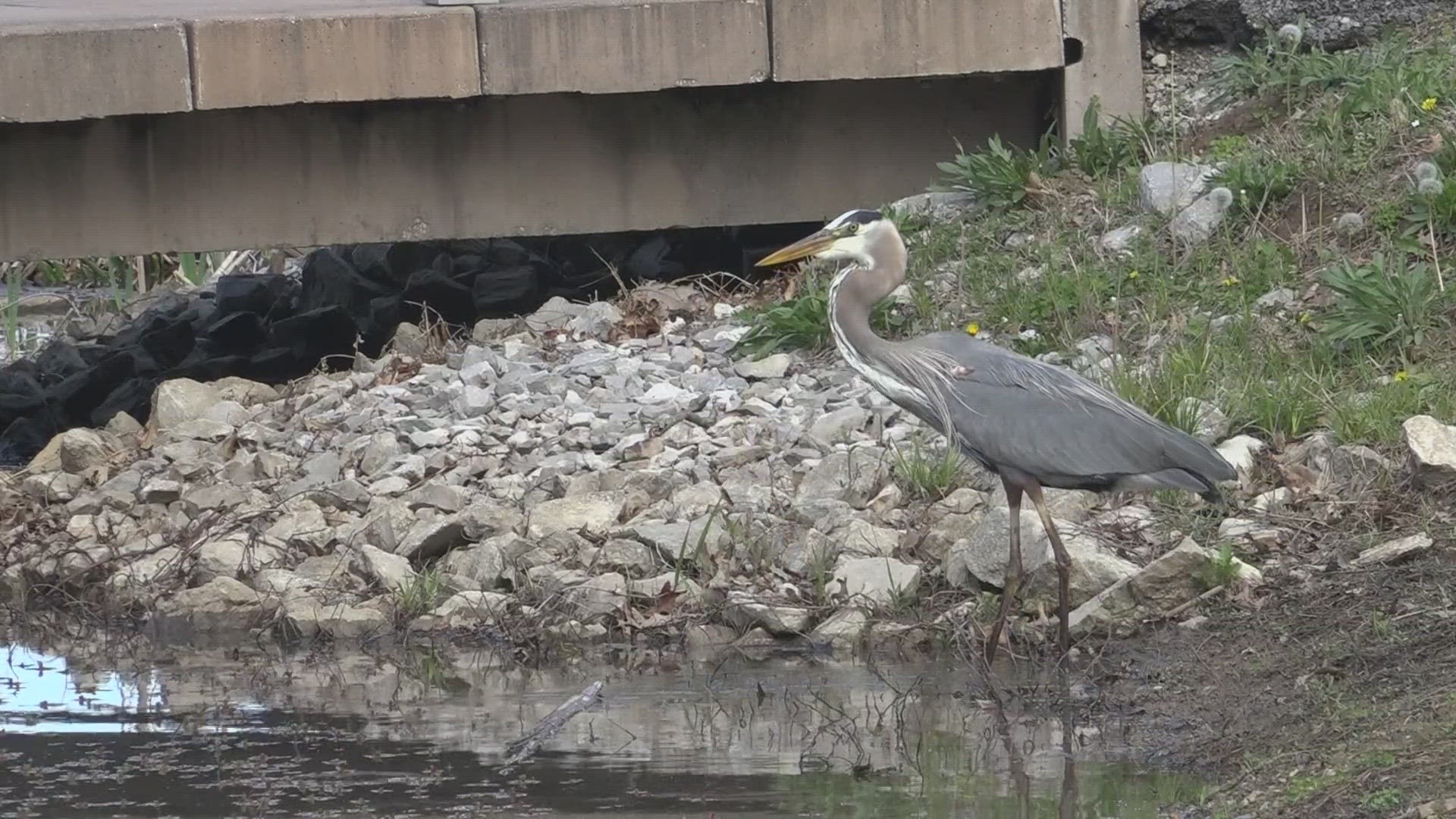CARBONDALE, Ill. — Thousands of sightseers and scientists are traveling to both sides of the Bi-state for the 2024 Great American Eclipse.
In Carbondale, Illinois, it’s estimated that as many as 50,000 visitors could come to the town of 25,000.
“I’ll be looking to the sky with my kids when this event comes through,” Southern Illinois University researcher Dr. Brent Pease said.
However, the assistant professor in the SIU Department of Forestry will also be keeping an ear out for what’s happening in the world around him.
“We have hundreds of records all across the path of totality across the United States,” Pease said.
For 48 hours before and after the eclipse, audio recordings will be used to track how animals react to the celestial event.
“There’s been hundreds of years of written observations during the eclipse of what happens to wildlife during the event,” Pease said. “We typically seeing breeding birds quiet down, nocturnal insects start to vocalize. There’s research suggesting that bees retreat to hives whenever the eclipse happens.”
While the project is purely scientific. it will help establish a baseline for wildlife management that Pease said will be studied for centuries.
“We’re basing a lot of this research we’re doing on research from the 1500s,” Pease said. “This isn’t a frequent event. It’s a slow build. We’re just here at the right time and the right place to provide that information.”
The groundbreaking work will later be used as part of a "Sounds of Nature" soundscaping project to break down barriers for the visually impaired.
“While we’re listening to the eclipse, there’s a whole group of people in the United States and beyond that can’t see the eclipse the way that we are,” Pease said. “The soundscape project is partnering with the National Federation of the Blind as a way for them to engage and observe the eclipse through sound.”
The project is funded by NASA.
Pease said the study could be used as baseline for researchers for the next 300-plus years until the next total solar eclipse crosses southern Illinois.
To watch 5 On Your Side broadcasts or reports 24/7, 5 On Your Side is always streaming on 5+. Download for free on Roku, Amazon Fire TV or the Apple TV App Store.

